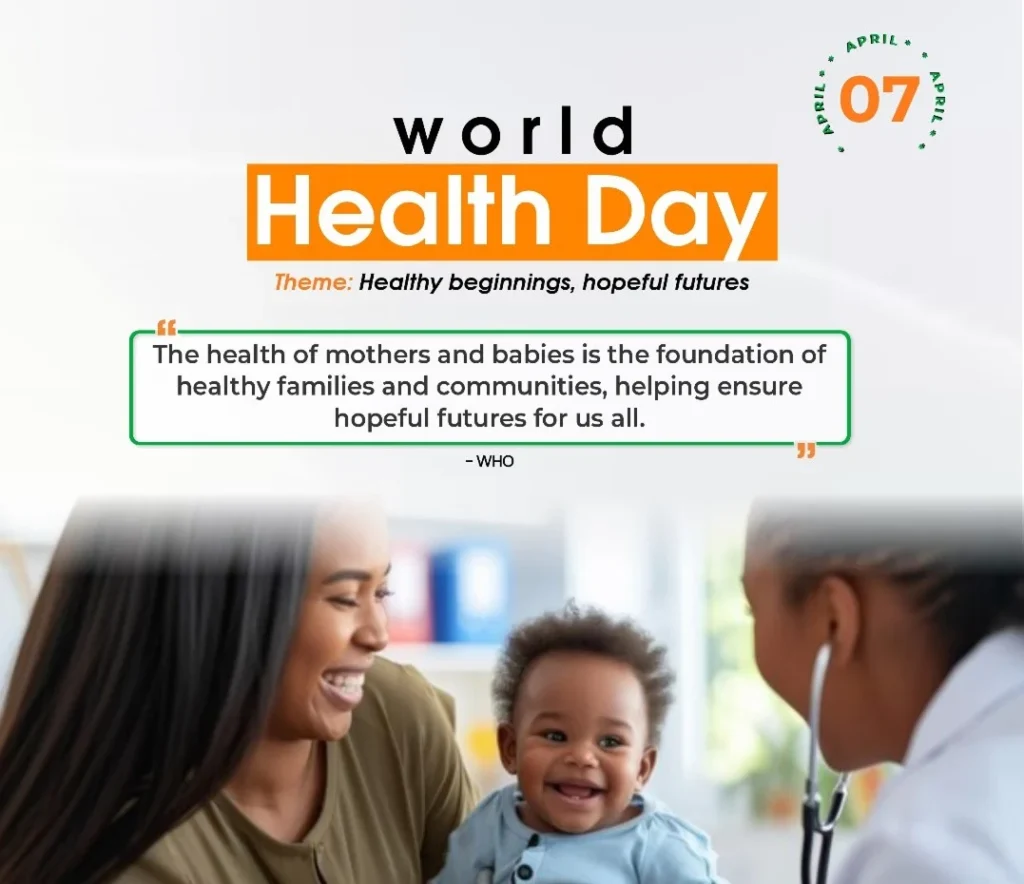As the world commemorates World Health Day 2025, the Resource Centre for Human Rights and Civic Education (CHRICED) calls on all tiers of government in Nigeria to declare a state of emergency in the health sector. This urgent measure is necessary to revive the nation’s ailing healthcare system and to fulfill the constitutional mandate of protecting the well-being and human rights for all citizens.
CHRICED observes with deep concern the slow and insufficient progress towards achieving Universal Health Coverage (UHC) in Nigeria. Currently, less than 5% of Nigerians are enrolled under the National Health Insurance Authority (NHIA), while over 70% continue to pay out-of-pocket for healthcare, an unsustainable and unjust burden for the average Nigerian.
This is particularly troubling given that in 2022, former President Muhammadu Buhari signed the National Health Insurance Authority Act into law, with Section 14 making health insurance mandatory for all residents. CHRICED had anticipated this law would trigger a renewed push to expand health coverage nationwide. However, the lack of enforcement and implementation has led to tragic consequences, such as the recent death of a pregnant woman whose family could not afford the ₦500,000 needed for her delivery.
These painful stories are not isolated. Countless Nigerians continue to lose their lives or the lives of loved ones due to the prohibitive cost of healthcare and a health system that is increasingly unaffordable, especially for vulnerable groups.
Despite the provision for a Vulnerable Group Fund under Section 25 of the NHIA Act, groups such as the elderly, persons with disabilities, and pregnant women still lack access to free or subsidized healthcare. The prevailing economic hardship in the country underscores the urgency for government to subsidize healthcare for vulnerable citizens.
CHRICED also notes with concern the non-implementation of the Free Maternal and Child Healthcare Law (2023) in Kano State. Though the law was enacted to ensure funding between the state and local governments for free healthcare services for women and children, implementation has stalled, with preventable deaths continuing among pregnant women and young children.
The failure to implement critical health laws and policies continues to worsen maternal and child health indicators in Nigeria. At the national level, maternal mortality stands at 576 deaths per 100,000 live births, making Nigeria one of the countries with the highest maternal mortality rates globally, according to United Nations International Children’s Emergency Fund (UNICEF). This poor health outcome is exacerbated by the ongoing brain drain of medical professionals, leaving the country with an ever-declining number of skilled birth attendants and trained personnel.
In Kano State, the statistics are even more alarming. With its high population and fertility rate, maternal mortality ranges from 576 to 1,025 deaths per 100,000 live births, and neonatal mortality is the highest in the country at 59 deaths per 1,000 live births. Only 21.5% of deliveries are attended by skilled birth attendants, highlighting a massive gap in access to quality maternal care.
CHRICED’s Recommendations:
- Prioritize Domestic Resource Mobilization for Health:
Governments at all levels must drive initiatives to enforce mandatory health insurance and use pooled funds to tackle systemic issues in the health sector. - Increase Health Budget to at Least 15%:
As recommended by the Abuja Declaration, 15% of annual budgets should be allocated to health, with a focus on strengthening infrastructure and human resources. - Encourage Private Sector Investment:
Government should actively collaborate with the private sector to develop health infrastructure across primary, secondary, and tertiary levels. - Subsidize Healthcare for Vulnerable Groups:
In accordance with the NHIA Act (2022), federal and state governments must begin transparent and accountable subsidization of healthcare for the most at-risk populations.
CHRICED emphasizes that access to quality maternal and child healthcare is not a privilege, it is a fundamental human right. Upholding this right is essential to securing a future where every child survives and every mother thrives.
Signed:
Ibrahim Zikirullahi
Executive Director (CHRICED)

